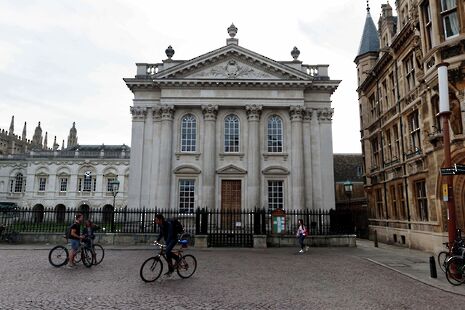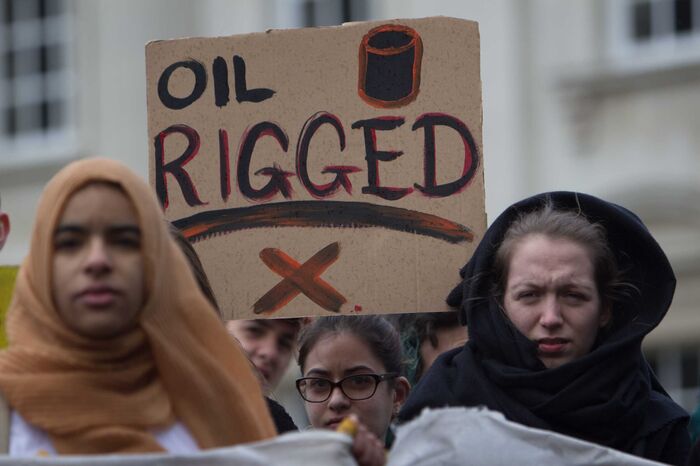Planned Regent House Grace calling for new report on divestment reaches 200 signatures
The Grace calls out the failure of the June 2018 report on weighing up the pros and cons of a policy of divestment

A Grace calling for a new report into the benefits and disadvantages of a policy of divestment has reached over 200 signatures from academics, greatly exceeding the number required to warrant submission to the Regent House at 50 signatures. It was organised by Reverend Jeremy Caddick of Emmanuel College and is expected to reach 300 signatures ahead of Zero Carbon’s ‘Week of Action’.
This comes two years after the previous Grace on divestment, which was handed into Regent House in January 2017, calling for the University to “divest its Endowment from companies whose business is wholly or substantially concerned with the extraction of fossil fuels”. In response to this, the Council then announced it would commission a report and set up a Divestment Working Group (DWG) “specifically into the advantages and disadvantages of the policy of disinvestment which the Grace supports”.
The second Grace specifically pointed out the shortcomings of the Council’s follow-up action on the previous Grace. It argued that the DWG “asked for a broader consideration of the issues” instead of analysing the benefits and disadvantages of a divestment policy, while the report produced by the Council in June last year “did not weigh the advantages and disadvantages but rather stated the Council’s opposition to a policy of divestment, and passed on to other matters”.
Thus in the second Grace, it is demanded that the Council produce a new report to the University that will “set out fully the advantages and disadvantages, including the social and political ones” of a policy of divestment, whilst providing “costed details of possible strategies” of how such a policy might be implemented.
It also asks for an assessment of the “moral acceptability” of the University “benefitting from investments in fossil fuels that threaten that future”, particularly as an institution that is “committed to educating future generations”.
The DWG has been surrounded in controversy after The Guardian revealed in January that two members of the group did not disclose that they were directly involved in two major proposed donations to Cambridge from mining and petroleum company BHP Billiton and oil and gas company BP.
Alice Guillaume, a student who served in the DWG also revealed to Varsity that the way in which the group conducted its research was questionable.
In an effort to push the Grace further, Cambridge Zero Carbon Society is holding a Divestment week of action from 11th to 15th March, calling on students to collect signatures from academics in their colleges and faculties.
Ahead of this they released a statement saying, “Cambridge students and academics alike have demonstrated an increasing aversion to the immoral and unsustainable investment practices of our university.”
“We have reached a crucial point in the campaign and so we are calling all Cambridge students to embrace this Week of Action - We need your help getting the University to divest!””.
 News / Night Climbers call for Cambridge to cut ties with Israel in new stunt15 April 2024
News / Night Climbers call for Cambridge to cut ties with Israel in new stunt15 April 2024 News / Police to stop searching for stolen Fitzwilliam jade17 April 2024
News / Police to stop searching for stolen Fitzwilliam jade17 April 2024 News / Cambridge University cancer hospital opposed by environmental agency12 April 2024
News / Cambridge University cancer hospital opposed by environmental agency12 April 2024 Interviews / In conversation with Dorothy Byrne1 March 2024
Interviews / In conversation with Dorothy Byrne1 March 2024 Interviews / ‘It fills you with a sense of awe’: the year abroad experience17 April 2024
Interviews / ‘It fills you with a sense of awe’: the year abroad experience17 April 2024



